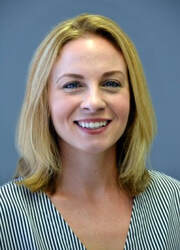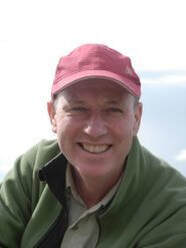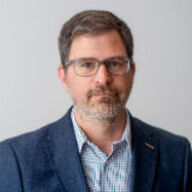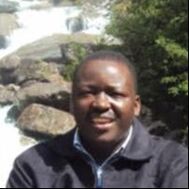The SUSE5 program includes invited talks by four scientists working on the forefront of urban stream research: Prof. Taurai Bere, Dr. Michael Chadwick, Asst. Prof. V. Kelly Turner, and Assoc. Prof. Chris Walsh will join us in Austin. Please see more about their work and the subjects of their talks below.

Asst. Prof. Kelly Turner
Wed, 12 Feb - 3:30 pm STORMS: Translating Local Decision-Making to Environmental Outcomes V. Kelly Turner is an Assistant Professor at the University of California, Los Angeles where she is Associate Director of Urban Environment Research at the Luskin Center for Innovation and faculty affiliate at the Institute of Environment and Sustainability. She researches the relationship between institutions, urban design, and the environment. Her approach draws from social-ecological systems frameworks to address urban planning and design problem domains. In recent work she has used this approach to investigate microclimate regulation, green infrastructure for stormwater management, and residential landscaping. This talk describes the interdisciplinary STORMS project, which aims to determine how heterogeneous decision-making processes and management actions in the Cleveland, Ohio and Denver, Colorado regions influence environmental outcomes at the watershed scale. One aspect of the project aims to understand the role formal rules and individual norms in shaping stormwater management actions, especially the likelihood of adopting green infrastructure as a stormwater control measure. Emerging results from the project will be presented and discussed with respect to the capacity of regional stormwater management programs to facilitate collective action to improve hydrology and ecosystem health in urban regions. |

Assoc. Prof. Chris Walsh
Wed, 12 Feb - 5:00 pm You need a little space, in the right place, and a lot of demand for the water. Lessons for urban stream protection from the Little Stringybark Creek Project. Chris Walsh co-leads the interdisciplinary Waterway Ecosystem Research Group (https://thewerg.org) at the University of Melbourne and is also a principal researcher in the Melbourne Waterway Research-Practice Partnership (https://mwrpp.org), a collaboration between Melbourne Water and The University of Melbourne. He has arrived at this point after 25 years a stream ecologist, most notably studying streams of urban environments, and working with practitioners towards urban land and water management for stream protection. He is a confirmed urbanite in the great metropolis of Melbourne, where he convened the first Symposium on Urbanization and Stream Ecology in 2003. In this talk, Chris will describe The Little Stringybark Creek project; a large, ambitious, catchment-scale experiment designed to test if the ecological degradation of streams resulting from urban stormwater runoff could be reversed through retrofitting catchment drainage systems. After installation of more than 600 dispersed stormwater control projects across 5 small experimental catchments, and 17 years of hydrologic and ecological monitoring of their streams (and control and reference streams), in-stream responses have been variable, but lessons learnt have been big and influential. The talk will highlight lessons from the project, and how they have influenced plans for major stormwater retention and harvesting in a large greenfield development in northwest Melbourne, to protect currently rural Emu Creek: the site of the next experiment. |
Proudly powered by Weebly


